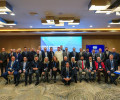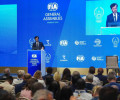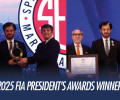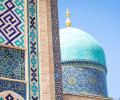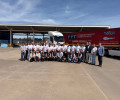FIA updates ASNs on Historical Technical Passports as it opens a new era at Rétromobile

As historic motor sport continues to grow around the world, Rétromobile, one of Europe’s largest annual classic car shows, provided the stage for a special FIA seminar detailing the future of historic competition cars and providing ASNs with an update on changes to its regulations that open the door to classic racing to a wider and potentially younger demographic.
First held in 1976, and held annually in Paris, Rétromobile has grown to become one of Europe’s premier displays of classic road and racing machinery and for the first time the FIA has been present, with a stand detailing the Federation’s longstanding commitment to the preservation of automotive history.
The presence of the FIA at the show provided the perfect platform on which to European ASNs and update on changes to its regulations governing historics.
Last October an update to Appendix K of the International Sporting Code was approved by the World Motorsport Council and from 2025, racing cars built between the years 1991 and 2000 will be able to carry the Historic Technical Passports that allow them to compete in FIA championships and international motor sport events.
The update is set to bring many of the world’s most iconic race and rally cars back to competition and will allow fans and enthusiasts to enjoy the sights and sounds of a remarkable decade of technological advancement.
The seminar at Rétromobile also celebrated 50 years of FIA Historic Motorsport regulation, detailing the Federation’s initial Period Specifications and how the technical and safety aspects of FA Historic competition have developed and how the FIA’s deep commitment to keep historic automobile on the road and track has grown over the past half-century.
Online seminars for Member Clubs in other regions will be held in the near future, ensuring that the global community for historic racing continues to grow and thrive

 Facebook
Facebook Twitter
Twitter